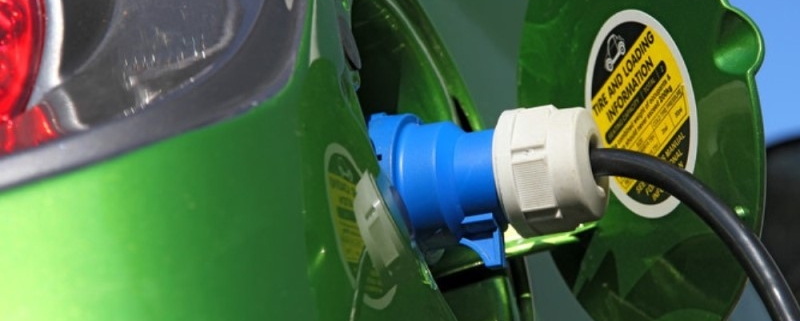When Bertha Benz made the world’s first road trip in an automobile 134 years ago, one of the tricky points of the voyage was finding a place to refuel. Luckily, chemists at the pharmacy carried ligroin, a lab solvent made of petroleum, which propelled Benz and her children on their 110-mile trip in Carl Benz’s grand invention.
Electric vehicle proponents hope the rollout of the $5B National Electric Vehicle Infrastructure program will make it a little easier for EV drivers in the U.S. to charge than it was for Benz to refuel in 1888 Germany.
And like during the Benz road trip, EV drivers should soon get an assist from an existing property type — this time, gas stations, which experts said could get a boost in business with the installation of chargers.
Decades ago, gas stations simply sold gas before eventually incorporating convenience offerings, car washes, food, ATMs and lottery sales, said NRC Realty & Capital Advisors Executive Managing Director Evan Gladstone, whose company represents sellers of convenience stores and gas stations.
All of those additions have made the properties more appealing as an investment, and the added amenity of EV chargers could similarly boost owners of filling stations.
“The more sources of income that a convenience store can generate, the bigger the bottom line,” Gladstone told Bisnow. “And certainly the biggest cost probably in an EV charger is the permitting and installation. So once it’s in there, if we had a set of stores that had EV charging stations, it would absolutely be a great selling point.”
It takes generally 20 to 30 minutes to charge a vehicle up to an 80% full battery with fast charging, four to six times as long as a five-minute gas tank fill-up.
“EV charging is going to be a destination,” said Sheryl Ponds, founder and CEO of the Washington, D.C.-based charging solution company Dai Technologies Corp. “And people are going to be there for at least 15 or 20 minutes, which is a whole lot longer than gasoline at the pump.”
Gas stations have been a popular niche commercial real estate asset class for years because of their diversified revenue streams, with more than $2B in annual transaction in the years leading up to the pandemic, according to a CCIM report. EV charging figures to boost the appeal.
“From the perspective of a business owner of one of those locations, that is more time for somebody to spend in their facility, grabbing maybe more food than they would typically have because they have time to actually wait and eat rather than trying to drive on the road,” said Hadley Tallackson, a policy analyst at nonpartisan energy and climate think tank Energy Innovation. “So I would say there’s a really strong case for these more convenience-oriented restaurants as well.”
The Federal Highway Administration earlier this month approved 35 states’ NEVI proposals, which are expected to result in EV charging access across 53,000 miles of U.S. highways. As the FHWA finalizes the remaining states’ proposals by the end of the month, service station operators are eager to offer what for many is a new way to refuel.
“I don’t think we’re far away from having a lot more traffic expecting that kind of amenity at our truck stop,” said Raina Shoemaker, who co-owns and operates two travel centers in Lincoln, Nebraska. “And I also think that we’re a part of the chicken-and-the-egg scenario, that you need more EV drivers to have the chargers, but EV drivers need to see more EV chargers to really buy into getting more EV vehicles.”
Source: Bisnow

